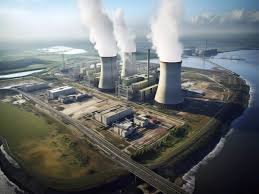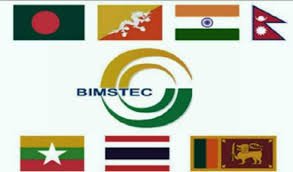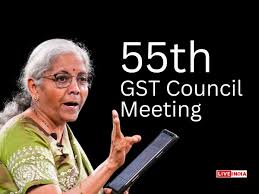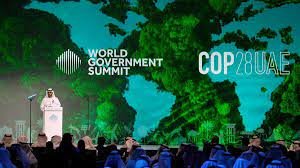COP28: A Comprehensive Guide to Key Information
The 28th Conference of the Parties (COP28) has emerged as a pivotal global event addressing climate change, bringing together nations to discuss pressing environmental concerns and potential solutions. This landmark gathering aims to build on previous commitments and forge new strategies to combat the escalating climate crisis.
Amid escalating global temperatures and ecological upheavals, COP28 assumes paramount significance for aspirants eyeing government exams, particularly those in civil service roles like IAS and other competitive positions. The event holds multifaceted implications, touching upon sectors like policymaking, international relations, and sustainable development—a breadth of relevance for exam syllabi across various sectors.
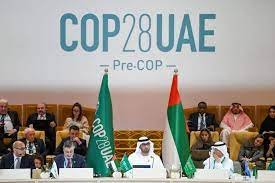
Why this News is Important:
Significance for Exam Aspirants
COP28’s centrality in global climate discussions cements its relevance for aspirants preparing for government exams. Its impact transcends environmental concerns, permeating through diverse sectors such as economics, governance, and international relations, forming a core aspect of examination topics.
Policy Implications
The decisions and resolutions crafted at COP28 are poised to shape global policies in the fight against climate change. Understanding these policies is crucial for aspirants seeking positions in administrative roles, where knowledge of environmental governance is pivotal.
Historical Context:
Evolution of Climate Conferences
The COP events trace their roots to the Rio Earth Summit in 1992, where nations adopted the United Nations Framework Convention on Climate Change (UNFCCC). Subsequent COP gatherings have marked milestones in global efforts to address climate change, with each meeting building upon prior agreements and commitments.
Progress and Challenges
Since COP15 in Copenhagen, these conferences have witnessed strides in awareness and collaboration. However, challenges persist, highlighting the urgency for more robust and actionable strategies to tackle climate change.
Key Takeaways from “COP28: A Comprehensive Guide to Key Information”
| Serial Number | Key Takeaway |
|---|---|
| 1. | COP28 as a pivotal event in addressing climate change globally. |
| 2. | Relevance of COP28 for exam aspirants across various government sectors. |
| 3. | Policy implications and their significance in shaping global governance strategies. |
| 4. | Historical evolution of climate conferences and their impact on environmental policies. |
| 5. | Persistent challenges and the necessity for stronger, actionable solutions to combat climate change. |
Important FAQs for Students from this News
Q: What is COP28?
A: COP28 refers to the 28th Conference of the Parties, a crucial global event focused on addressing climate change and environmental issues.
Q: How does COP28 relate to government exams?
A: COP28’s significance extends to various government exam syllabi, especially those related to civil services, as it covers critical topics like environmental governance, international relations, and policymaking.
Q: What historical context is essential for understanding COP28?
A: Understanding the evolution of climate conferences, starting from the Rio Earth Summit in 1992, provides crucial historical context for comprehending the significance of COP28.
Q: What are the key takeaways for exam preparation?
A: Key takeaways include COP28’s pivotal role in global climate discussions, its relevance for exam aspirants across diverse government sectors, policy implications, historical evolution, and persistent challenges related to climate change.
Q: How can knowledge about COP28 benefit aspirants in competitive exams?
A: Knowledge of COP28 aids in understanding global policy-making, environmental governance, and challenges, offering comprehensive insights valuable for various competitive government exams.
Some Important Current Affairs Links






